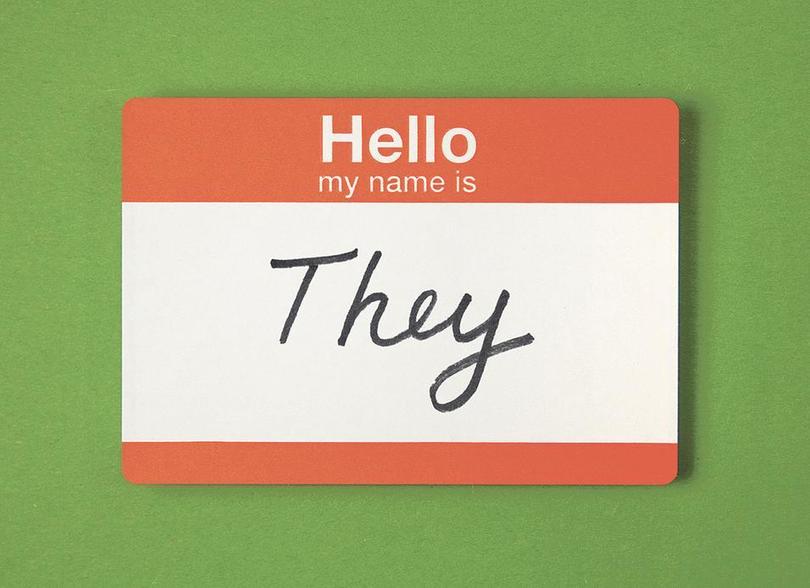
Copy editors, dictionary officials and language experts seem to be coming around to using the gender-neutral ‘they’ in the singular, instead of ‘he or she.’
Source: www.wsj.com
I used to be "old school" about the use of "they" as described in this article. I would certainly use it in speech, but I would never use it in written content. But as this article points out, as I become more aware of transgender issues, it makes total sense to use "they". I would rather refer a person as "they" than "it" because "it" refers to a thing, and a person is far from a thing.
What’s your take on this? Would this be a positive or negative evolution in the English language? Add your comments below.
–techcommgeekmom
See on Scoop.it – M-learning, E-Learning, and Technical Communications

Danielle M. Villegas is a technical communicator who currently employed at Cox Automotive, Inc., and freelances as her own technical communications consultancy, Dair Communications. She has worked at the International Refugee Committee, MetLife, Novo Nordisk, BASF North America, Merck, and Deloitte, with a background in content strategy, web content management, social media, project management, e-learning, and client services. Danielle is best known in the technical communications world for her blog, TechCommGeekMom.com, which has continued to flourish since it was launched during her graduate studies at NJIT in 2012. She has presented webinars and seminars for Adobe, the Society for Technical Communication (STC), the IEEE ProComm, TCUK (ISTC) and at Drexel University’s eLearning Conference. She has written articles for the STC Intercom, STC Notebook, the Content Rules blog, and The Content Wrangler as well. She was very active in the STC, as a former chapter president for the STC-Philadelphia Metro Chapter, serving and chairing on several STC Board committees, and most recently was the STC Board Vice-President before the organization closed.. You can learn more about Danielle on LinkedIn at www.linkedin.com/in/daniellemvillegas, on Twitter @techcommgeekmom, or through her blog.
All content is the owner's opinions, and does not reflect those of her employers past or present.
View All Posts



The old-school teachers who taught me WAY back would have no truck with this. You were a “he” or a “she.” Period. I understand that time moves on and now there are new social concerns. I use “they” when I write, too. I’m afraid my teachers would be horrified, however.
Just shows that you are more progressive than many people, Craig. 😉 I wouldn’t use it in written form that way, but rather I would change my writing to avoid using “he/she” and put things in plural so I could use “they” correctly.
I like Ben Zimmer a lot. So when he and his editor colleagues say singular they is OK, I’m willing to cast aside what I learned from my old-school teachers. Languages evolve, and heaven knows English needs a gender-neutral pronoun.
However, I confess to hedging my bets. Like you, Danielle, I structure my writing so that I rarely have to use singular they. Not because I disapprove, but to avoid offending those who do disapprove.
Precisely, Larry! It’s easier to go the diplomatic way, as you described, than get into the controversy of offending anymore (at least grammatically). I tend to be strict with some things grammatically, but this is one place where I can get over it easily and go with the flow. Just don’t drop the “-ly” from adverbs, though. That’s still a sticking point for me. 😉
When I read this article, I was pleasantly surprised by how many professional writers were willing to ignore the rule in favor of more inclusive, cleaner language. It shows that even us sticklers are willing to progress. Do you think the rules of grammar will officially change? What other grammatical roadblock will we tackle next?
Those are some good questions, Greta. Language always changes, but it’s one of those things that take a lot of time to get to that place of change. After all, we don’t use the word, “ye” in everyday written language anymore, right? This one is a little trickier because is goes somewhat against what many language emphasize even more than English does–gender-based language. Every foreign language I’ve ever taken has a feminine, masculine, and neuter. Does this mean that other languages will create or have changes to support more transgender topics? Time will tell. I don’t know that there’s a simple solution. We have a good “fix” for the moment, but it’s not without some complications.